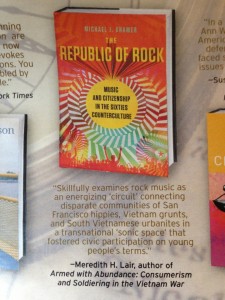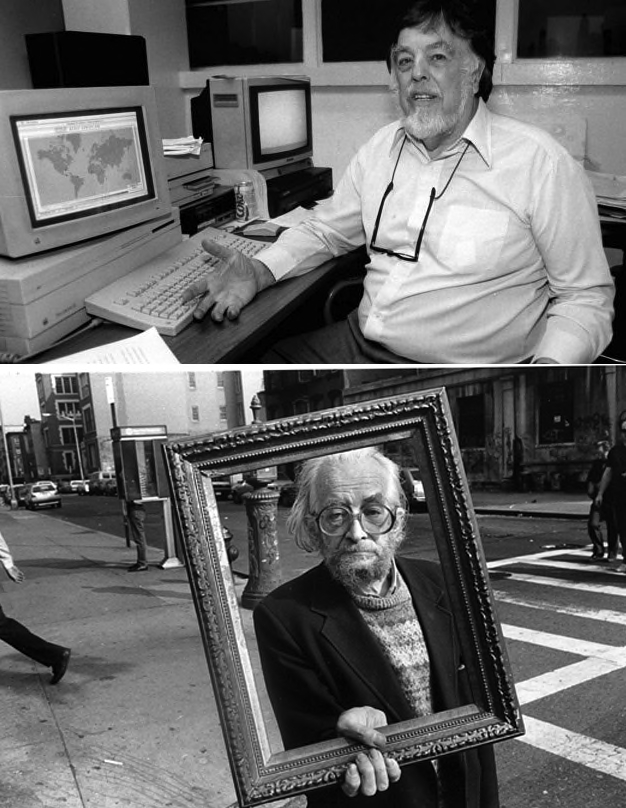nudhl
New Issue of Journal of Digital Humanities
http://journalofdigitalhumanities.org
Lots on topic modeling. What do folks think of topic modeling?
Big Data in Crosscurrents WCAS Magazine
Followup on Meeting 7
Thanks for a wonderful discussion today. More “back channel” comments are available at the Twitter #nudhl hashtag.
A few followup links.
After I inquired, Kate Bagnell tweeted a blog post she wrote about the lack of women in Invisible Australians, the White Australia archive project we examined today: http://chineseaustralia.org/archives/1757.
Tim Sherratt’s presentation on building Invisible Australians here: http://invisibleaustralians.org/blog/2011/12/it%E2%80%99s-all-about-the-stuff-collections-interfaces-power-and-people/.
Sean Takats’s now infamous posts about his tenure case: http://quintessenceofham.org/2013/01/17/dh-tenure-1-the-talk/ and http://quintessenceofham.org/2013/02/07/a-digital-humanities-tenure-case-part-2-letters-and-committees/.
Scalar: http://scalar.usc.edu/scalar/
Please add additional links, followup, questions, comments as you see fit.
Best,
Michael
MA in Digital Humanities @ Loyola
I know a few undergraduates have attended NUDHL events, and I’m guessing many of NUDHLs regulars work with and teach undergraduates, so this may be of interest. Loyola University’s MA in Digital Humanities is fantastic, as is its Center for Textual Studies and Digital Humanities. Forwarding on this note from Steve Jones:
Dear colleagues,
A reminder that now is the time for applications to the MA program in Digital Humanities at Loyola University Chicago (for fall 2013 semester). Information on the curriculum is available at the CTSDH website:
http://www.ctsdh.luc.edu/ma_digital_humanities
And that page also contains a link to the free online application:
Please refer interested students to the program and encourage them to email me directly with any questions.
With thanks,
Steve
—–
Steven Jones
Professor of English
Co-Director, CTSDH
Loyola University Chicago
http://stevenejones.org
THIS FRIDAY: MEETING 7 – Evaluating the Digital Humanities
Pedagogy in the Digital Age: Workshop
The Searle Center for Advancing Teaching and Learning is hosting a workshop for graduate TAs and instructors, “Pedagogy in the Digital Age,” on April 18th, 5:00-7:00pm. Come learn about how to incorporate new technologies and tools into your classroom teaching! Panelists include NUDHL conveners, Michael Kramer and Jillana Enteen, as well as Josh Honn (Digital Scholarship Fellow, NU Library) and Beth Corzo-Duchardt (Gender Studies TA and HASTAC Scholar). For registration and further information, please visit the Searle Center workshops website:
http://www.northwestern.edu/searle/calendar/index.html#tab3
Looking forward to seeing everyone there!
NUDHLConnections Grant
The NUDHLConnections Grant supports graduate student travel to symposia, conferences, workshops, and other events related to digital humanities taking place outside the Chicagoland area. Students who receive funding to attend these events are required to present the knowledge they have gained at a future NUHDL meeting. The purpose of this grant is to support graduate student education, deepen digital humanities expertise and knowledge within the Northwestern community, and forge connections to other institutions.
First round of applications are due 4/12/13 for immediate use. For summer or fall 2014, applications are due 5/24/13. Email your application to mjk@northwestern.edu and j-enteen@northwestern.edu.
To be eligible for funding up to $500 (in addition to research stipends of $300 for HASTAC@NUDHL Fellows), applicants should submit:
1. Application Form (see below).
2. A current CV.
3. A statement not more than two pages, single-spaced, that details the nature of the event that you wishes to attend, how it relates to your research, teaching, or scholarly activity as well as what its value may be to digital humanities knowledge and learning at Northwestern more broadly.
4. Documentation (pdfs, screen shots, links, etc.) of your participation at NUDHL meetings, on the NUDHL blog (www.nudhl.net), and/or HASTAC (hastac.org), and/or similar spaces of digital humanities scholarly discussion.
5. Any supporting materials (pdfs, screen shots, links, etc.) that document your current digital humanities research.
6. Supporting materials from the event organizers: explanation of the event, cfp, advertising, or other relevant documents.
NUDHLCONNECTIONS GRANT APPLICATION FORM:
NAME:
DEPT:
DATE STARTED GRADUATE SCHOOL AT NORTHWESTERN:
STATUS of GRADUATE WORK (in coursework; ABD; final year, etc):
EMAIL:
PHONE:
ADDRESS:
—-
EVENT FOR WHICH STUDENT WISHES TO RECEIVE FUNDING:
MANNER OF PARTICIPATION (i.e. attending, participating as student, presenting, etc.)
DATES OF EVENT:
LOCATION OF EVENT:
SPONSOR OF EVENT:
OVERALL BUDGET FOR ATTENDING EVENT (Registration fees, travel, hotel, etc.):
POSSIBLE DATES (MONTH, YEAR) FOR NUDHLCONNECTIONS PRESENTATION:
—-
First round of applications are due 4/12/13 for immediate use. For summer or fall 2014, applications are due 5/24/13.
Email your application to mjk@northwestern.edu and j-enteen@northwestern.edu.
Thinking about Michael Kramer’s talk
Michael gave a fantastic talk on Alan Lomax and Harry Smith today. I was struck by Lomax’s role as an unwitting anthropologist who took up in the 60s and 70s (what must have appeared to be) a deeply suspect, almost neocolonial project to categorize and staticize world music and dance. As one astute commenter on BoingBoing puts it, Lomax “seemed to hold his subjects in contempt […] preferring to keep his ‘peasants under glass.'” His cosmopolitan and, as Michael termed it, “democratic” vision must have seemed dangerously close to that of the cosmopolite cum cultural imperialist, a position Derrida ventriloquizes best: “I am (we are) all the more national for being European, all the more European for being trans-European and international; no one is more cosmopolitan and authentically universal than the one, than this ‘we,’ who is speaking to you.” Okay. So that’s one way to think of Lomax: as engaging in a specific type of anthropological project, a type of project that (thanks to Clifford Geertz and the publication of Malinowski’s diary) was passing out of style at the time and had become deeply morally suspect.
Michael’s talk also suggested to me another way of thinking about Lomax. Rather than only seeing him as carrying the torch for an anthropological approach and perspective that would soon–and rightly–come under attack, we can also see him as a precursor to what Franco Moretti calls “distant reading.” That is, Lomax’s Global Jukebox anticipates, and perhaps in part is the inspiration for, a style of scholarship popular today, one which privileges connection over content, the collective system over the individual item.
I wonder if Lomax is a link between a discredited perspective in anthropology and perhaps its revivification in the field of digital humanities and literary studies. I wonder what this tells us about the new privileging of “networks,” “interconnectedness,” and “systems” made possible by digital technologies and expanding sets of data. I wonder what this tells us about the unconscious assumptions we hold when we approach and try to parse this data.
Significantly, as the Q&A to Michael’s talk made clear, the Cantometrics coding system that Lomax pioneered was designed to forge connections; in other words, the 37 criteria did not reflect, so much as they created, patterns and commonalities among disparate musical cultures. The same (as Moretti admits) goes for distant reading; the criteria, the units of analyses, imposed upon texts necessarily yields connections and patterns because that’s what they are designed to do. They create the supposedly “objective” connections they are looking for (Moretti flirts with objectivity, I think). Lomax’s Cantometrics, as Michael noted, appear dated, arbitrary, and a bit bound up in assumptions of the cultural superiority of Western mode of measuring “difference” and “commonality.” As inspirational as Lomax clearly is as a sort of proto-digitalist, I wonder if he is also a cautionary tale, making visible the pitfalls inherent in today’s digitally-driven “distant” scholarship.
MLA’s Literary Studies in the Digital Age Evolving Anthology
The MLA has developed a “Commons” (like creative commons) and their newly launched publication is Literary Studies in the Digital Age. It’s an evolving anthology devised to keep the Modern Language Association engaging with the DH.
One contribution, David L. Hoover’s “Textual Analysis” is particularly worth visiting. It engages nicely with our last NuDHL meeting and with how we might use digital tools in literary scholarship.
Here’s the link: http://dlsanthology.commons.mla.org/textual-analysis/
Michael Kramer’s book and blurb.
Dear NüDHL:
Please see image below as you peruse images and videos in Michael Kramer’s earlier post for tomorrow’s presentation.
Also, please note, there’s another Kramer presentation later on, same day:
Title: “The Republic of Rock: Music and Citizenship in the Sixties Counterculture”
Presenter: Dr. Michael Kramer
Date: Friday, March 8
Time: 6:30 p.m. – 8:30 p.m.
Location: John Evans Alumni Center (1800 Sheridan Rd. – Evanston, IL
Doors open: 6:30 p.m.
Presentation begins: 6:45 p.m.
Reception with snacks and refreshments to follow
Free and open to the public
Description: Why did rock music matter so much to participants in the sixties counterculture? This multimedia presentation, drawn from Dr. Kramer’s book, The Republic of Rock: Music and Citizenship in the Sixties Counterculture (Oxford University Press, 2013), explores how the music fostered inquiries into pressing issues of citizenship during the Vietnam War era. From the psychedelic ballrooms of San Francisco to the war zone itself in Southeast Asia and back again, rock’s sounds ricocheted around the globe. As people listened and responded to rock in San Francisco, Vietnam, and elsewhere, deeply interior issues of personal individuality collided with collective efforts to make sense of democratic community. A mobile public sphere appeared—what might best be described as an atmosphere of democracy or an invisible republic generated by sound. Dancing, feeling, thinking, wondering, exploring, and debating the nature of citizenship, countercultural participants turned the pleasures of rock toward the serious business of what citizenship was, and what it might be, in the modern world.
To RSVP, please click on the following link:
https://docs.google.com/a/u.northwestern.edu/spreadsheet/viewform?fromEmail=true&%3Bformkey=dGpGVDZiT20xRU1XdGxlVDZPRFNZb2c6MA
NUDHL #6, Fri., 3/8, 12-2pm: Research Presentation – Michael J. Kramer, “Alan Lomax, Harry Smith, and the Proto-Digital Study of Folk Music”
THEME:
Alan Lomax’s controversial “cantometrics” study of folk music worldwide, begun in 1959, was an early use of quantitative data and digital technologies (punch cards) to study vernacular music and culture. Harry Smith’s Anthology of American Folk Music, created in 1952 for the famous Folkways label, offered a different mode of research: a whimsically annotated, quasi-mystical collection of rare American folk, blues, and ethnic commercial recordings from the 1920s and 30s. As two distinctive sonic and informational conceptualizations of how to organize musical traditions, these “proto-digital” projects offer valuable lessons for thinking about the representation of folk music within contemporary digital humanities research, particularly when it comes to assembling and interpreting what a digital archive can be and do.
Additional material below.
TIME:
Friday, March 8, 2013, 12-2pm.
PLACE:
Alice Kaplan Institute for the Humanities Conference Room, Kresge Hall, 1880 Campus Drive, #2-360, Evanston, IL 60208 (map: http://maps.northwestern.edu/#latlngz=42.051%2C-87.675%2C17&lookupid=116).
FOOD:
Lunch provided.
SLIDES AND TEXT OF TALK:
**PLEASE NOTE: THIS PRESENTATION IS A WORK IN PROGRESS. PLEASE DO NOT QUOTE OR CIRCULATE WITHOUT PERMISSION OF AUTHOR, mjk@northwestern.edu**
ADDITIONAL MATERIAL:
More on The Berkeley Folk Music Festival and the Digital Study of Vernacular Music Project at www.bfmf.net.
Alan Lomax’s Global Jukebox Demonstration Video (1998):
A Cantometrics coding card:
Armand Leroi, “The Song of Songs” – Evolutionary biologist uses data from the Global Jukebox Project (video, 2007).
Cover of liner notes booklet to Harry Smith’s Anthology of American Folk Music (1952):
The rest of the liner notes are here.
Gadaya’s “Old Weird America”: an online study of the Anthology of American Folk Music.
Drew Christie’s “Some Crazy Magic: Meeting Harry Smith”: short animated film about John Cohen meeting Harry Smith:
Excerpt from documentary film about the Anthology of American Folk Music (From The Harry Smith Project: The Anthology of American Folk Music Revisited):
Alan Lomax’s Association for Cultural Equity.




